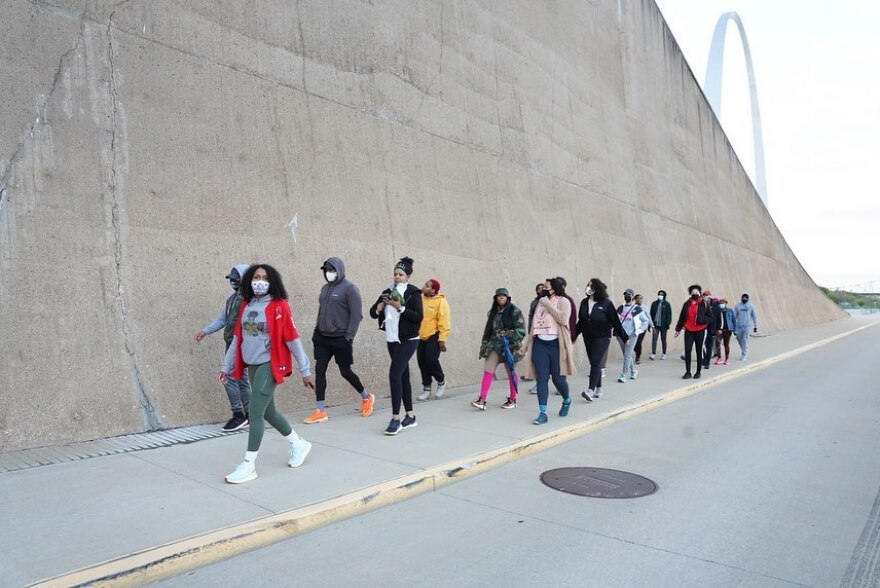Black People Who Hike, a St. Louis-area outdoors group, is trying to help bring more African Americans to the nation’s parks with a five-city national park tour across the country.
The group received a $120,000 ParkVentures grant from the National Park Foundation. The philanthropic arm of the National Park Service wants to pay the way for people of color to experience some of the 423 park sites that historically did not include Black people.
Trips to national parks can be beneficial to Black St. Louisans because experiencing nature is good for one’s mental and physical health, said Debbie Njai, founder of Black People Who Hike.
“Hiking in itself is a form of meditation,” Njai said. “But to really take it a step further and incorporate journaling or incorporate mindful yoga, or affirmations as we start our day, I think people will see an even elevated effect.”
Njai began hiking in August 2019 to release stress during a painful time in her life. While hiking across the region, Njai noticed that she was often the only Black person on trails. This pushed her to start the outdoors group to try to get more Black St. Louisans interested in hiking and the outdoors.
Since September 2019, the group has hiked nearly 75 trails in the area and is now heading to prominent national parks.

According to National Park Service data, only 6% of all national park visitors are Black people. The National Park Foundation aims to help increase that with its grants. The St. Louis group is one of over 40 nationwide to receive funding.
This June and July, Njai and group leaders will guide participants through Yosemite National Park in California and Yellowstone National Park in Wyoming. In September, parkgoers will visit Great Sand Dunes National Park and Preserve in Colorado, followed by trips to Acadia National Park in Maine in October and Hawaii Volcanoes in Hawaii in November.
The grants will pay for park entry fees, transportation throughout the park and city, food, outdoor equipment and lodging for each participant. People who want to attend the tour will have to make their own travel arrangements. However, the group will provide some scholarship money for people who may need assistance getting to the parks.
“Most people book their trip to some of these more popular national parks, even a year in advance just to make sure that they can get lodging accommodations and travel accommodations while they're in the parks,” Njai said. “So we're making sure that we take that strain off of our community.”

Most of the park trips will last three or four days and will include activities such as hiking, kayaking, watching wildlife, sand sledding, stargazing, camping, yoga, meditation, and journaling.
The tour also will include Black history park walking tours.
Njai said this will be the first time she and some other Black St. Louisans will visit famous national parks. She said many Black people are not exposed to the outdoors as children and are not aware of the connection between African Americans and national parks.
The National Park Service opened its first park in 1872. However, because some parks were segregated, African Americans could not visit until the 1950s. Although several generations of Black people were not allowed to take in the sites until segregation ended, the all-Black 92nd Infantry Division, also known as the Buffalo Soldiers, served as park rangers and protected the lands and rivers during the late 1800s through the early 1900s.
Throughout history, people of color have had to question whether or not they were safe while visiting parks, said Nichole McHenry, regional relevancy, diversity and inclusion program manager for the park service.
“I think, now not only the National Park Service, but organizations like Black People Who Hike and some of these other new organizations, understand the importance of people of color getting outdoors,” she said.
McHenry said Black people can learn more about the country’s rich history and the stories behind the wildlife, plants and people who protected the land.
Njai hopes the tour changes the landscape of national parks with an abundance of Black people visiting yearly.
“I think just by exposing Black people and reengaging Black people to hiking in St. Louis is kind of a big deal … but then to really go to these national parks outside of Missouri is taking hiking to another level,” Njai said.
Anyone interested in participating can request information by texting NPT2022 to 55444.
Follow Andrea on Twitter at @drebjournalist



